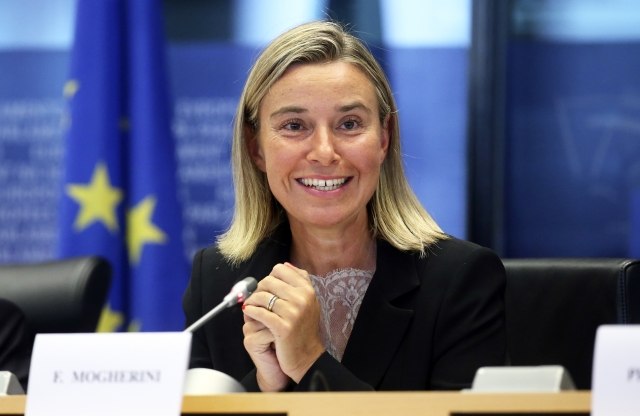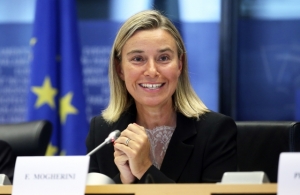EU’s Mogherini says Brussels Wants Partners, Not Failed Satellites
TBILISI – European Union foreign policy chief Federica Mogherini said prior to her visit to Armenia’s capital Yerevan that Brussels seeks strong, reliable partners through its Eastern Partnership framework rather than pliant failed states.
“A union of half a billion citizens could be tempted to look at its neighbors and see potential subservient satellites. But that would be a non-starter. We don’t need satellites. What we need are partners…strong ones,” Mogherini said.
The EU’s Eastern Partnership is an initiative governing Brussels’ policies towards former Soviet republics that include, Armenia, Azerbaijan, Belarus, Georgia, Moldova and Ukraine.
Mogherini’s comments came amid concerns the European Union’s enthusiasm for its immediate eastern neighbors has cooled amidst a growing financial and refugee crisis.
Frozen conflicts in Georgia, Azerbaijan and Moldova as well as an increasingly bloody hot war in eastern Ukraine has many in Brussels concerned that a policy aimed at deepening ties to the countries in question may further exacerbate an already volatile political situation across the European continent.
Political and economic instability across the countries of the Eastern Partnership continues to endanger or isolate their respective governments, further retarding their ability to overhaul or resolve the outstanding structural and security issues that would help each gain political capital in Brussels.
Many European officials are deeply wary of pressing forward towards further EU integration of the Eastern Partnership members as they also fear the reaction of an increasingly erratic and belligerent Russia following Moscow’s invasion and annexation of Ukraine’s Crimea Peninsula in 2014.
Mogherini, however, looked to soothe concerns by emphasizing important steps taken by Brussels in recent months, including granting Georgia a visa-free regime to the bloc’s Schengen countries and the EU’s increasing reliance on its eastern neighbors for energy supplies as it looks to move away from Russian oil and gas.












